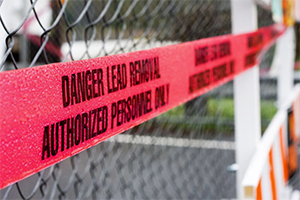Symptoms from Lead Exposure Similar to ADHD

Are you concerned about lead exposure and your child? Many parents, particularly those who live in areas with older water pipes or in homes built prior to 1978, worry about lead and the effect of possible exposure on their children.
Lead is a strong toxin that can cause damage to young children’s developing brains. For some children, this may cause a decrease in IQ points, behavioral issues, and learning difficulties. Some children may have trouble controlling their emotions and may demonstrate aggressive behaviors. Currently, lead levels above 5 micrograms per deciliter of blood can be considered a concern; a level of 10 micrograms or above is considered serious. No amount of lead in children’s blood is thought to be safe.
Research suggests that there is a connection between lead exposure in young children, even at low levels, and ADHD. Children with measurable blood levels of lead sometimes have difficulty with attention and experience behavioral issues that may be associated with ADHD. Symptoms of ADHD include:
- failing to give close attention to details or making careless mistakes
- struggling to follow through with instructions
- difficulty with organization
- losing things or being easily distracted
- difficulty waiting or taking turns
- interrupting or blurting out comments
If you see symptoms of ADHD in your child or you live in an area that has a high risk of lead exposure, discuss your concerns with your child’s pediatrician or health care provider.
Your child’s pediatrician can begin an evaluation for ADHD that can include blood tests to determine if there has been lead exposure and at what level. The healthcare provider will work with you to determine the best course of treatment.
If your child is diagnosed with ADHD, effective treatment is available. Education about ADHD and parent management training have been found to be effective for all children. Medication can be added to the treatment plan as needed. You can read more about treating childhood ADHD in our Treatment Overview.
Your child may also benefit from academic accommodations, such as a 504 Plan or an Individualized Education Plan, sometimes referred to as an IEP. Read more about these plans and how you can make a request to your child’s school to begin the process of putting school accommodations in place.
When it comes to lead exposure, the most important thing you can do is to prevent your children from coming into contact with lead. Lead can be found in old paint chips, peeling painted walls or ceilings, and dust or soil that contains lead residue. If you suspect lead in or around your home, these suggestions can help you minimize exposure:
- Use cold water from the faucet for drinking and cooking. Have your water tested. Replace any old plumbing or use a water filter designed to remove lead.
- Use a damp mop or cloth to wipe up dust on floors and windowsills.
- Make sure your children wash their hands and faces before eating. Offer your children healthy foods—especially ones rich in calcium, iron, and vitamin C.
- Have your family members and visitors remove their shoes before coming into your home to prevent lead exposure from the soil.
To further limit your exposure:
- If you work in a place or have a hobby that uses lead-based materials, change your clothes and shower as soon you come home.
- If you are a woman who is pregnant or hopes to become pregnant, do not participate in home renovations or visits homes built before 1978 that are being renovated.
For more information on lead exposure, visit the CDC’s Information for Parents.
